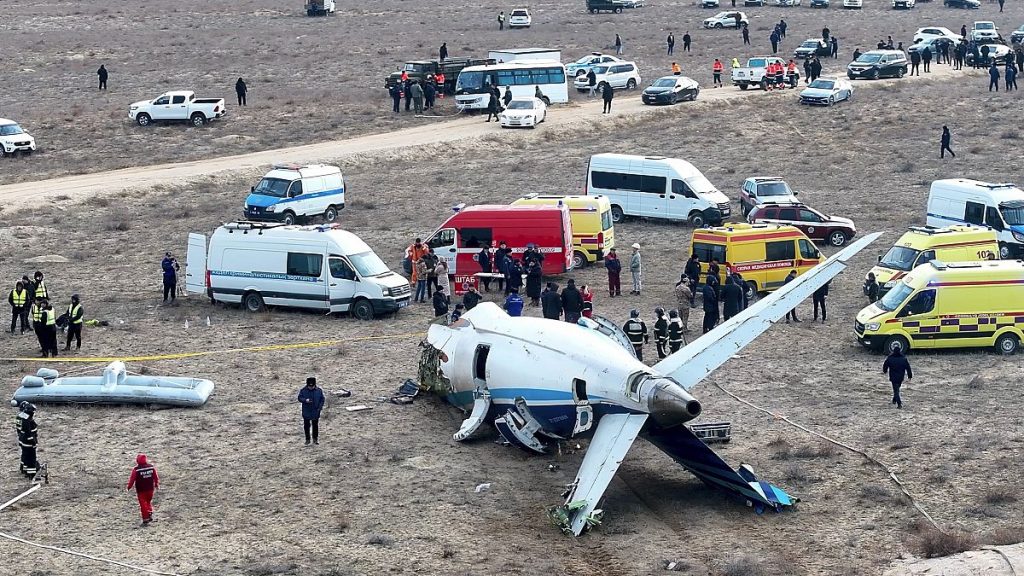An Azerbaijan Airlines Flight 8432 crashed while attempting an emergency landing in Aktau, Kazakhstan, killing 38 people and injuring 29 survivors. Initial reports indicated that a Russian surface-to-air missile was fired at the aircraft as it flew over Chechnya. Survivors reported hearing three blasts that seemed to come from outside the aircraft as it flew over Grozny. An official probe into the crash has not yet concluded, but Azerbaijan’s Minister of Digital Development and Transport, Rashad Nabiyev, stated that the investigation is now focusing on determining the type of weapon that caused the incident.
The White House has stated that there are “early indications” that Russian air defence systems may have brought down the Azerbaijani passenger plane. This assessment, made by national security spokesman John Kirby, aligns with statements made by some Azerbaijani officials and aviation experts who blame Russia’s response to a Ukrainian aerial attack for the crash. The statements have intensified pressure on Russia, where officials reported a drone attack in the region where the aircraft was flying to land. The investigation into the incident is ongoing, with evidence pointing to the possibility that Russian air defence systems were involved in bringing down the aircraft.
Azerbaijan Airlines has suspended flights from Baku to seven Russian airports, including Grozny, until the final results of the investigation are released. Additionally, Kazakhstan’s Qazaq Air announced the suspension of flights from Astana to Yekaterinburg due to an ongoing risk assessment of flights to Russia. Israel’s El Al also announced the cutting of flights from Tel Aviv to Moscow for the week due to developments in Russia’s airspace. The decisions to suspend flights indicate growing concerns over the safety of air travel in Russian airspace following the crash of the Azerbaijani passenger plane.
The investigation team, along with aviation specialists invited for the case, will work to determine what kind of weapon or rocket was used in the crash. Survivors reported seeing holes in the plane’s wing and signs of damage inside the aircraft, suggesting an impact from sharp external objects. A flight attendant sustained hand injuries, while a passenger suffered injuries to her hand and leg as a result of the explosions. The investigation will delve into the type of weapon involved in the crash, and the second black box of the aircraft has been located and handed over to the investigation team for analysis.
The incident highlights the complexities in the political and security dynamics in the region, with allegations and accusations between different countries playing a part in the analysis of the crash. The US has hinted at Russian involvement with early indications suggesting their air defence systems may have played a role in bringing down the aircraft. The ongoing investigations will aim to provide clarity on what transpired during the crash, how the aircraft was affected by external factors, and ultimately, who is responsible for the tragic incident.
The statements made by various officials and survivors provide insight into the events leading up to the crash, with reports of explosions heard by passengers and crew as the aircraft flew over Grozny. The decision by Azerbaijan Airlines and other airlines to suspend flights to Russian airports underscores the seriousness of the incident and the need for a comprehensive investigation to ensure the safety of air travel in the region. As the probe continues and more information is gathered, the focus will be on determining the cause of the crash, the type of weapon that was used, and the implications for future flights in the area.













